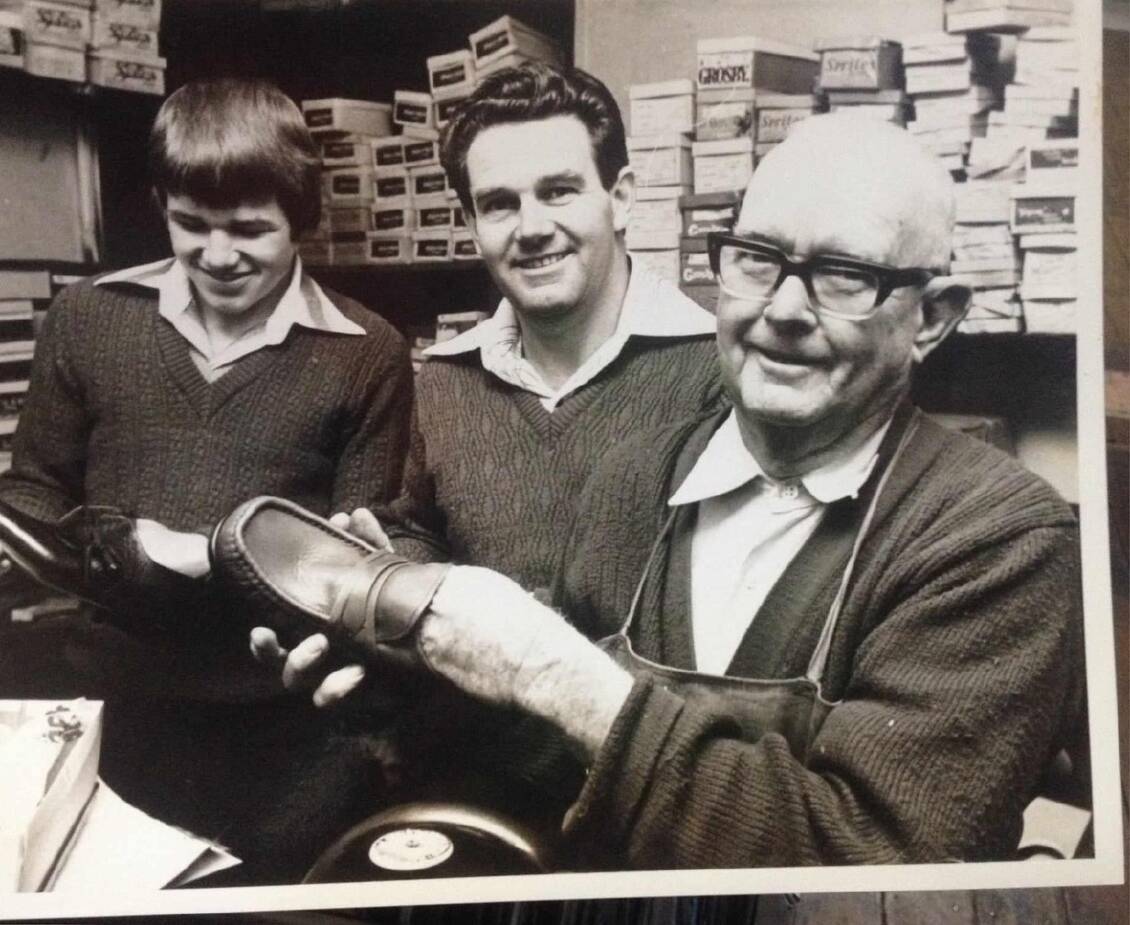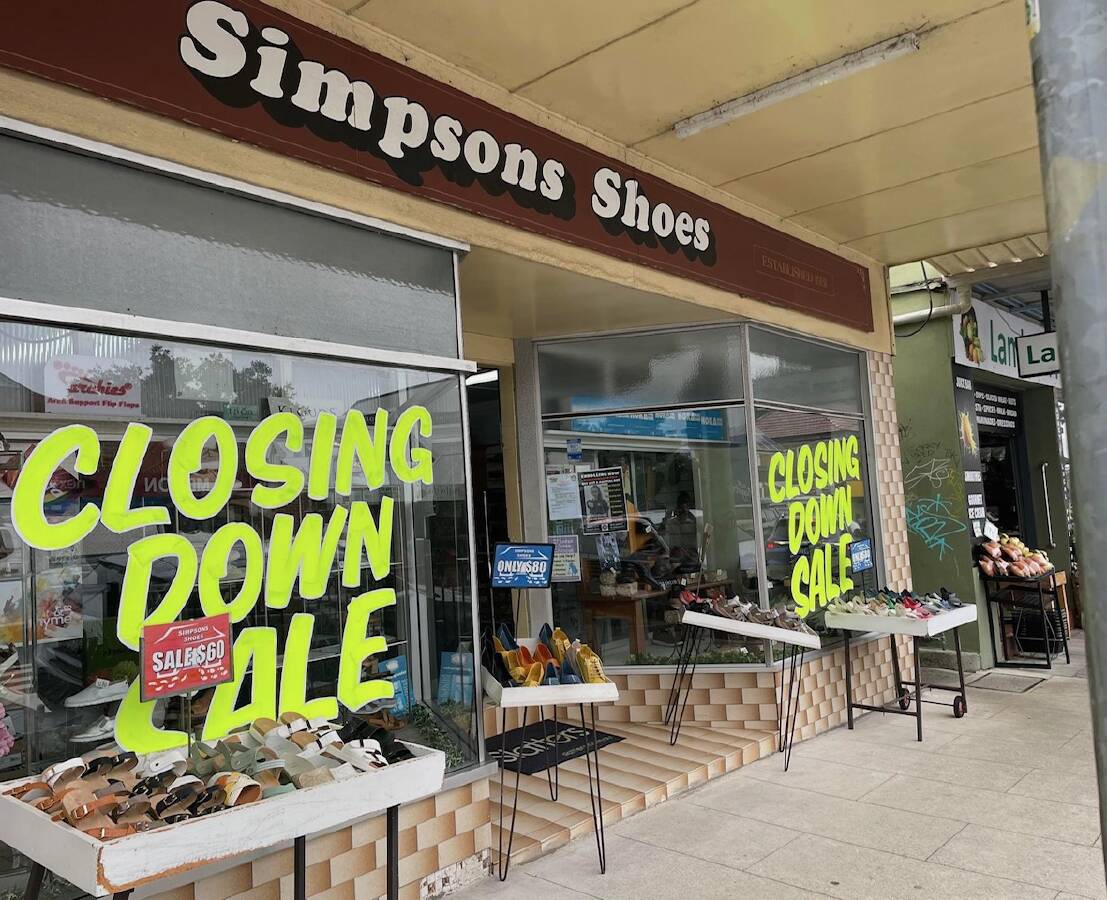
Craig Simpson's memories of his grandfather come in small but unforgettable moments. First, his handshake with a grip like iron; even in his 80s, he had a firm grip from decades of working the bootmaker's hammer and pliers. Then, his workbench, which still stands at the back of the family's Lambton shop, where he tinkered away quietly, never sitting down. Then, in another moment, he recalls his attention to detail, his careful skill and how he had never bought a pair of shoes in his life.
Stephen Simpson was an unassuming man of steady routine. He took his bootmaking apprenticeship in New Lambton as a young man before going out on his own and renting a shed in the backyard of the local pub around 1931, where he started his life's work lovingly mending shoes in a time when fashion was not so fast and repairing was the way business was done.
Three years later, in April 1934, Mr Simpson bought the shop at 100 Elder Street at Lambton and put up the sign with his name on it above the door.
His son Kevin was born two years later, in 1936, and would also go on to take up his father's trade.
Craig, the third generation of Simpson men to work the family shoe store, remembers the Friday he walked out of Lambton High School in 1978, aged 16, and went to work with his dad and pop.
Simpsons Shoes has been a hallmark of the Lambton business community for 93 years, first as a bootmaker and repairer under the guidance of the elder Mr Simpson, then as a retailer in the early 1960s, and, finally, as one of the last bastions of an era of local business when products were made with care for a local clientele.
Craig Simpson has worked in the family business for more than four decades. On Saturday, he drove to Sydney for one of his last shoe retailer fares after he decided to close Simpsons Shoes, which has operated from the same Lambton shopfront on Elder Street for almost a century.
It was a poignant swan song for Mr Simpson, who spoke with the Newcastle Herald on his journey to the city to reminisce about his grandfather's legacy.
"It will be very sad after doing this for 46 years," he said, "A lot of people have asked if we are selling the business, but it is not up for sale; we are closing down. That legacy will end with me."
Mr Simpson remembers watching his grandfather work, mending old leather-soled shoes and replacing the heels. Like his father and grandfather before him, he knows the anatomy of his work in the way that genuine artisans tend to do. He can put his hand inside a shoe and tell if it will fit correctly.

That kind of skill only comes from decades of practised experience and calls back to what feels like a bygone era of small local trade.
"It will be sad to see that loss in the local area," Mr Simpson said, "But it's something that has been happening for the last few years.
"I was very fortunate for quite a number of years to have my grandfather, who would come in every morning, work his half-day and then go and play bowls in the afternoon, and I would work the shop with my father on the sale of shoes. It was certainly something to have Pop in the back repairing shoes; when you see repairs being done, you know exactly how it's made.
"Pop never purchased a pair of shoes in his life. He used to make his own."
As mass production and the rise of online shopping became ubiquitous, the place for a local bootmaker has drifted into legacy, Mr Simpson said. He will turn 62 in October and said that with the end of this era, he is looking forward to retirement and fishing his property at Tuncurry.
"All good things come to an end," he said, "Retail has definitely become hard work. I was told by a customer about six or eight months ago, when we had just decided to close, that if you retire in your early 60s, it's documented that you live longer than if you retire in your late 60s or 70s.
"I hope he's right."
Mr Simpson said that after his swan song trip this weekend, he plans to continue to sell his last stock until the planned closure around the end of March.
"I can still remember," he said with a smile. "I left Lambton High on a Friday at lunchtime. I went home, showered, got changed, and walked to the shop.
"I had been working Thursday nights and Saturday mornings just helping out, but that was really the first day of full-time work."







